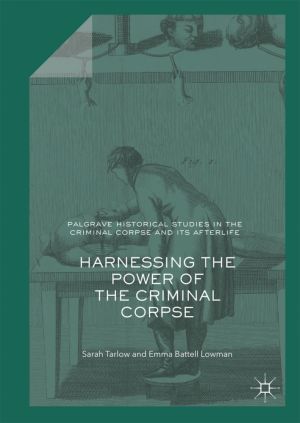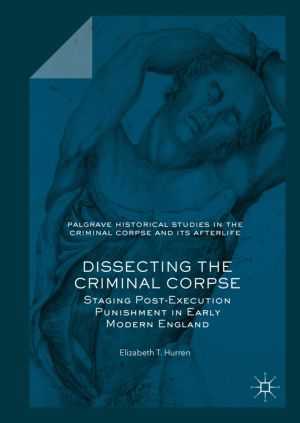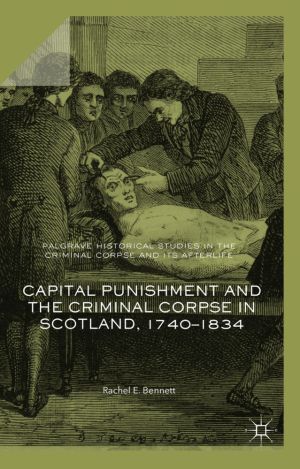
This book examines the magnitude, causes of, and reactions to white-collar crime, based on the theories and research of those who have uncovered various forms of white-collar crime. It argues that the offenders who are convicted represent only 'the tip of the iceberg' of a much greater problem: because white-collar crime is forced to comp...

This book explores the magical and medical history of executions from the eighteenth to the early twentieth century by looking at the afterlife potency of criminal corpses, the healing activities of the executioner, and the magic of the gallows site. The use of corpses in medicine and magic has been recorded back into antiquity. The lacerated bodie...

This book is the culmination of many years of research on what happened to the bodies of executed criminals in the past. Focusing on the eighteenth and nineteenth centuries, it looks at the consequences of the 1752 Murder Act. These criminal bodies had a crucial role in the history of medicine, and the history of crime, and great symbolic resonance...

This textbook focuses on the criminality and victimization of the elderly population. It provides a global perspective on the extent of elderly crime and victimization, with international comparisons for addressing the problem. It explores the extent and types of crimes committed by the elderly, the characteristics of older criminals, and the respo...

Those convicted of homicide were hanged on the public gallows before being dissected under the Murder Act in Georgian England. Yet, from 1752, whether criminals actually died on the hanging tree or in the dissection room remained a medical mystery in early modern society. Dissecting the Criminal Corpse takes issue with the historical cliché of cor...

This book is the first academic study of the post-mortem practice of gibbeting ('hanging in chains'), since the nineteenth century. Gibbeting involved placing the executed body of a malefactor in an iron cage and suspending it from a tall post. A body might remain in the gibbet for many decades, while it gradually fell to pieces. Hanging ...

This free book provides the most in-depth study of capital punishment in Scotland between the mid-eighteenth and early nineteenth century to date. Based upon an extensive gathering and analysis of previously untapped resources, it takes the reader on a journey from the courtrooms of Scotland to the theatre of the gallows. It introduces them to seve...

This book analyses the different types of post-execution punishments and other aggravated execution practices, the reasons why they were advocated, and the decision, enshrined in the Murder Act of 1752, to make two post-execution punishments, dissection and gibbeting, an integral part of sentences for murder. It traces the origins of the Act, and t...

I've already accepted the fact that Bring-Your-Own-Device (BYOD) is a business trend that's here to stay. According to one report I recently read, just 23 percent of enterprise employees use company-sanctioned mobile devices only - meaning 77 percent of employees are using their own devices in some capacity to do their job. 1 As the Chief...

As technology and software become more and more important to Portuguese society, it is time for Portugal to take them more seriously, and become a real player in that world. This book discusses several ideas to make Portugal a place where programming, TDD, Open Source, learning how to code, hacking (aka bug-bounty style), and DevOps receive the con...
